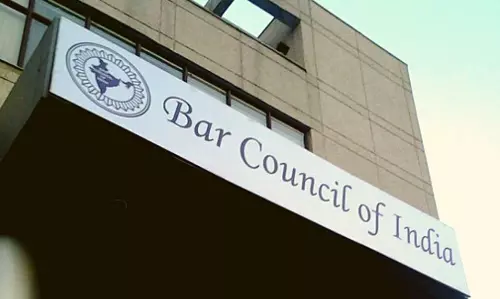
Striking down NJAC and reviving Collegium system
text_fieldsThe Supreme Court, in a landmark verdict on Friday, quashed the new National Judicial Appointments Commission (NJAC) Act which was responsible for the appointments and transfer of judges in the higher judiciary and restored the Collegium system in which the Chief Justice of India (CJI) would have the ‘the last word’.
The 4:1 verdict was passed by the five-judge Constitutional bench headed by Justice J S Khehar who said that the NJAC Act was unconstitutional and void. The judges ruled that the independence of the judiciary was a basic structure of the Constitution which cannot be tampered with and that the Collegium comprising five senior judges would continue. The Court stated that it was aware of the drawbacks of the system and would consider suggestions to improve it. The NJAC was established through the 99th Constitutional amendment, passed unanimously by the Lok Sabha and Rajya Sabha and ratified by the twenty state legislatures to replace the 1993 Collegium system for the appointment of judges to the Supreme Court and the 24 High Courts. It comprised a six-member panel headed by the CJI, Union Law Minister, two senior Supreme Court judges and two ‘eminent’ persons. The move is seen as a major blow to the BJP government which termed it as a "setback to parliamentary sovereignty". NJAC was one of the top priorities of the NDA government when it came to power last year with the government getting a Constitutional amendment and swiftly clearing the NJAC Act.
While Union Law Minister DV Sadananda Gowda expressed the ‘surprise’ over the verdict, Ram Jethmalani, Fali Sam Nariman and Prashant Bhushan termed the ruling as historic and a victory of democracy. Article 124 of the Constitution says that the President should appoint the Supreme Court judges after consultations with the judges of High Courts and the Supreme Court and the CJI should be consulted in all appointments except his/her own. In the wake of increased political influence on the appointment of judges and their submitting to the corrupt government officials, the apex Court had ruled that the appointment of the judges should be made by the Collegium and not by the executives. Thus the system was formed two decades ago responsible for the judicial appointments. But criticisms were increasingly raised about its flaws and non-democratic nature along with irregularities in the caste equations showing less representation of backward classes in the Supreme Court and High Courts. Studies showing that this imbalance was reflected in the judicial proceedings and hindrance of social justice, posed suspicions about the ‘nature’ of the courts. The desire for promotions to senior positions after retirement led to rampant corruption in the judiciary and also pandering of the judges to the government. Eighteen out of the 20 Supreme Court judges retired after 2008 January occupied positions in Government Commissions and Tribunals.
The Commission for judicial appointment was formed as a result of outcries for resolving the bias in appointments and to maintain transparency and make the appointments rooted in social justice. But apprehensions are rising over the government toppling the primacy of the judiciary and the role of the CJI who would then be “reduced to an individual figure from an institutional head”. The Supreme Court in a 1996 judgement had made clear that such interferences should be avoided. The latest verdict reflects the same stance of the SC. Questions as to whether the parliament had the right to involve in judicial appointments and whether the apex court had the power to nullify the Constitutional amendment recognized unanimously by the Parliament are also being raised. The verdict establishes that the Collegium system as well as the NJAC does not lead to a transparent judicial system. Democracy will survive only if the judicial system remains free of flaws. Given the colonial egotism and feudal mentality which evidently drives the judges, a new system is absolutely essential. Beyond all favouritisms, the commitment of the judiciary and the legislature should be towards the government and its people.























